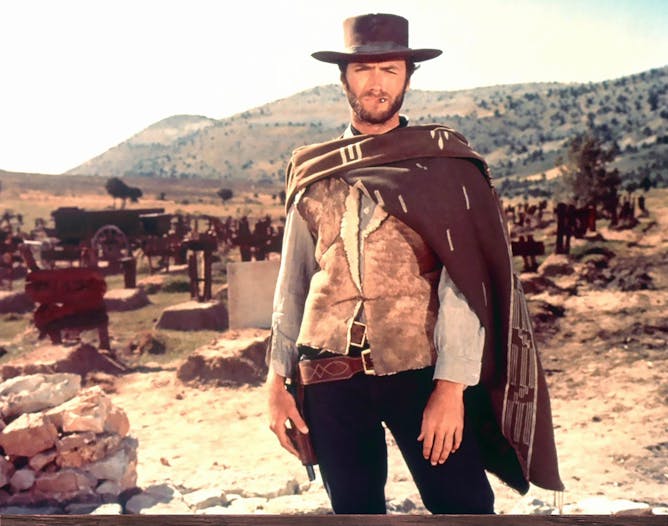|
|
|
|
Anyone who spends as much time on Twitter as I do (too much) will know that it can, very frequently, become a cesspool of hateful commentary and trolling.
The racist abuse that followed England’s crushing loss to Italy in the Euros final could have been anticipated by many – especially to these researchers tracking Twitter commentary ahead of the match. Given what they found with publicly-accessible software, it raises the question: Could – and should – Twitter have done more to preempt the firestorm?
Much of the commentary that makes the internet occasionally unbearable has to do with political polarisation and arguments. This divisiveness, as we’ve seen with Cambridge Analytica and other scandals, can be exacerbated by targeted political advertising. But simply “avoiding politics” won’t keep you safe. New research describes how targeted ads – even non-political ones – can isolate and divide us.
When it’s time to stop browsing the web and catch up on my Netflix queue, I like to watch pretty much everything with subtitles on, and when they don’t match up, it can be pretty jarring. But that’s nothing compared to the political propaganda and censorship that has occurred throughout the fascinating history of film dubbing.
|
Avery Anapol
Commissioning Editor
|

|
|

Laurence Griffiths / EPA-EFE
Nicole Ferdinand, Oxford Brookes University; John Bustard, Ulster University; Nigel Williams, University of Portsmouth
The racist abuse of England's black players was predictable and easily monitored.
|

Zenza Flarini/Shutterstock
Silvia Milano, University of Oxford; Brent Mittelstadt, University of Oxford; Sandra Wachter, University of Oxford
We know targeted political adverts contribute to polarisation, but commerical ones leave us fragmented too.
|

The Good, the Bad and the Ugly by Sergio Leone is a classic example of dubbed post-war European film.
Pictorial Press Ltd/Alamy
Damien Pollard, University of Cambridge
Governments could use dubbing to censor ideas they didn't like or insert messages in line with their propaganda.
|
Health + Medicine
|
-
Jennifer T. Grier, University of South Carolina
COVID-19 vaccination produces a more consistent immune response than a past infection. With the delta variant, the difference in protection may be even greater.
-
Juliet Wakefield, Nottingham Trent University
If people feel a sense of duty to their local community, they're more likely to protect themselves and others by taking a COVID-19 vaccine.
-
Trish Greenhalgh, University of Oxford
Governments in the west repeatedly failed the public when it came to masks.
|
|
Politics + Society
|
-
David Everatt, University of the Witwatersrand
Corruption thrives in a destabilised state with weak institutions. South Africa cannot be allowed back to that space because there will be no turning back.
-
Patrick D Bellegarde-Smith, University of Wisconsin-Milwaukee
President Moïse is dead. Two politicians say they're in charge. Parliament is suspended. A Haitian studies scholar explains Haiti's power vacuum and says elections alone won't restore democracy there.
-
Nic Newman, University of Oxford
The pandemic has driven news platforms to shift towards paying for content faster than they planned.
|
|
Science + Technology
|
-
Simon Cotton, University of Birmingham; Peter Raymond Slater, University of Birmingham
Some lithium-ion batteries can now propel a car 250 miles on a ten-minute charge.
-
Amy Zadow, University of South Australia
The creep of digital communications into our entire lives is not as harmless as we think.
|
|
Environment + Energy
|
-
Jake M Robinson, University of Sheffield
A fear of microbes, like germs, could be harming human health.
|
|
Business + Economy
|
-
Enrico Bonadio, City, University of London; Magali Contardi, Universidad de Alicante
A new Russian law forces French champagne producers to label their products as 'sparkling wine'.
|
|
| |
Featured events
|

|
Sustainable Places Research Institute, Cardiff University, Cardiff, Cardiff [Caerdydd GB-CRD], CF10 3BA, United Kingdom of Great Britain and Northern Ireland — Cardiff University
|

|
Whiteknights House, PO Box 217, Reading, Reading, RG6 6AH, United Kingdom of Great Britain and Northern Ireland — University of Reading
|

|
University of Essex, Wivenhoe Park, Colchester, Essex, CO4 3SQ, United Kingdom of Great Britain and Northern Ireland — University of Essex
|
|
|
|
| |
| |
| |
| |
| |
|
|
|
|
|
|
|